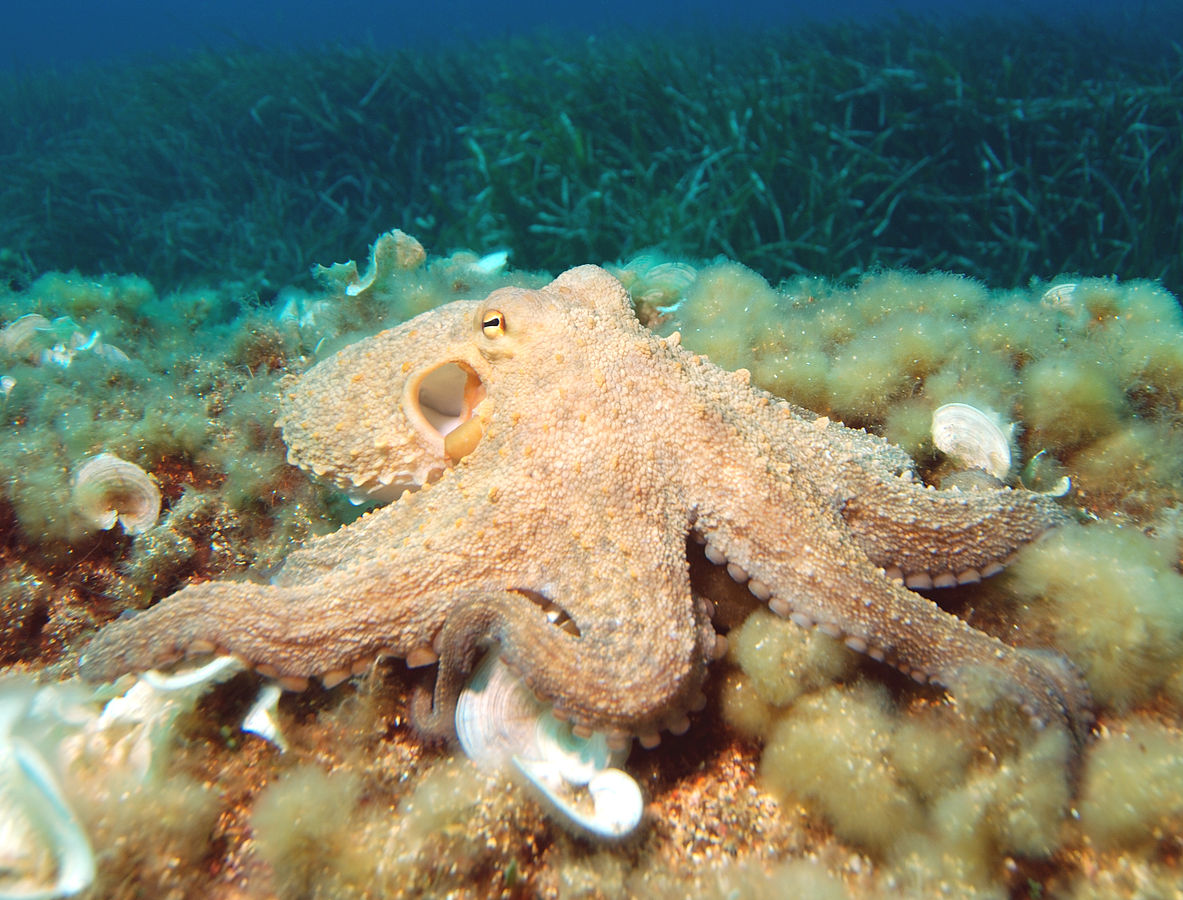Elephants on LSD, bees on cocaine, and now to add to the mix of bizarre scientific studies… Octopuses on MDMA.
Dr. Gül Dölen, a neuroscientist at the Johns Hopkins University School of Medicine, recently published a study in Current Biology of the behavioural effects of 3,4-Methylenedioxymethamphetamine (aka MDMA) on the California two-spotted octopus. The study is fascinating, as although octopuses and humans are separated by 540 million years of evolution, both have the same SlcA4 gene which encodes for the binding site of MDMA.
The experiment demonstrated that octopuses don’t just have the ability to bind the chemical, but also express similar behavioural effects as seen in human trials. Dölen suggests that the results provide evidence that the serotonin pathway, which MDMA affects, is a key part in the history of the evolution of social behaviour across species: “People are like, ‘have you got any pictures of octopuses holding glow sticks?’ which I kind of ignore because that wasn’t really our objective. MDMA is a great tool for investigating whether or not an octopus can become social.”
MDMA is a great tool for investigating whether or not an octopus can become social.”
Serotonin, a neurotransmitter, is heavily involved in the regulation of our mood, cognition and social interaction, and the application of a pro-serotonergic chemical like MDMA increases the level of serotonin in the brain.
In human trials, this led to increased empathy and connectedness, hence the promising potential for MDMA to be used as a treatment for PTSD. But how does an octopus react to the drug?
In the experiment, four octopuses absorbed doses of MDMA through their gills after being placed in a beaker of the diluted drug. Then, the octopuses were subjected to an enclosed environment with three consecutive chambers: an empty one in the middle, an object in the side chamber, and another octopus on the other side. In the wild, octopuses are fairly anti-social animals, usually displaying aggressive actions towards other octopuses, and often only displaying social behaviour during mating season. This was evident when octopuses not given the drug were put in the tank, as they spent little time interacting with the other octopus, preferring play with the object instead. However, under the influence of MDMA, the octopuses showed a significant increase in social interaction.The researchers reported that the octopuses were observed to be more calm, playful and curious after the administration of the drug. They even described an octopus looking like it was performing “water ballet.”
However, under the influence of MDMA, the octopuses showed a significant increase in social interaction.
The results are surprising as octopuses have a vastly different nervous system to us, with their brain surrounding their throat, and the majority of their nerves being located in their tentacles. In addition to the evidence that serotonergic pathways are a key to social interactions, Prof. David Nutt, neuropsychopharmacologist at Imperial College London added that the findings provide further evidence for emotion and empathy in species of animals outside of humans. “This just proves that this is not some peculiar human characteristic, it’s not even a mammalian characteristic, it’s a characteristic of brains”, he said. “It also shows that serotonin has a hugely important role in mediating social interactions right across species”.
The results gained from this experiment demonstrate that humans and octopuses may be more similar than we previously thought.
It is difficult to extrapolate from a study of four specimens, but the results gained from this experiment demonstrate that humans and octopuses may be more similar than we previously thought. One thing’s for sure…
They’ve got to be great huggers, right?
Image source: https://en.wikipedia.org/wiki/Octopus#/media/File:Octopus2.jpg

